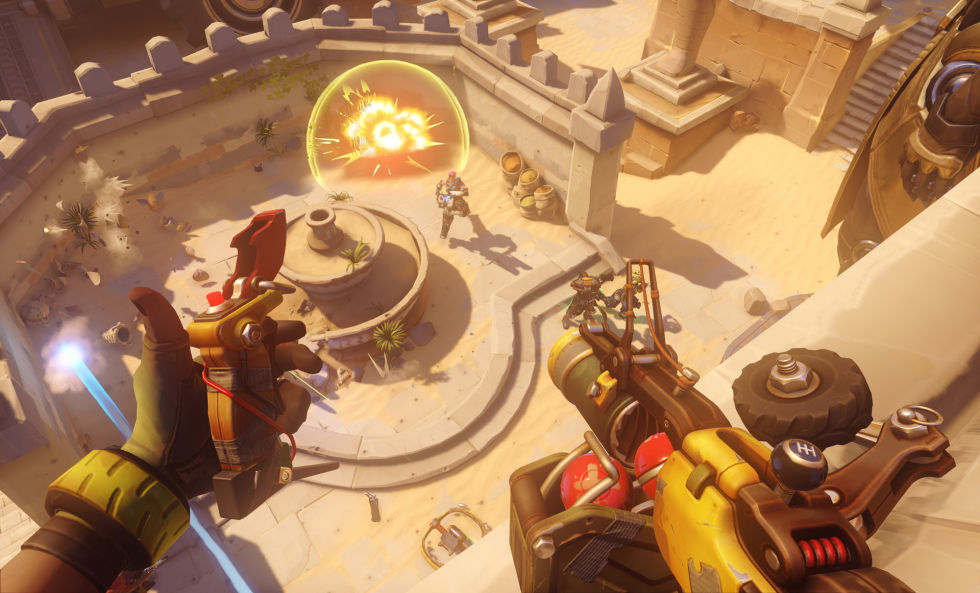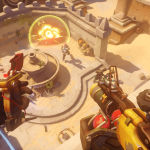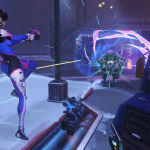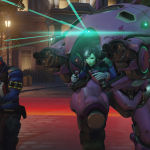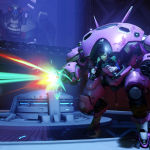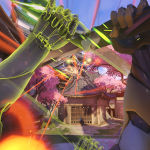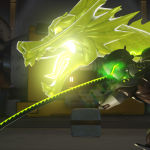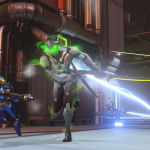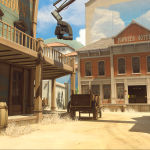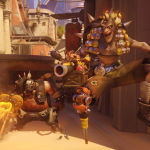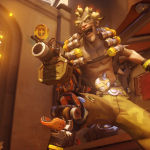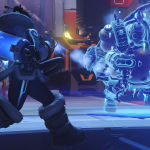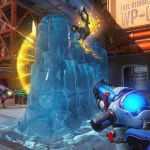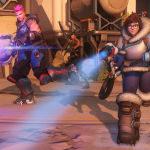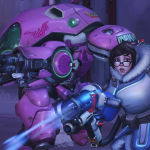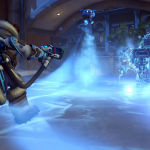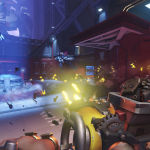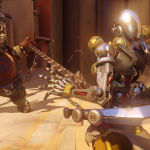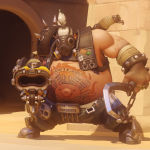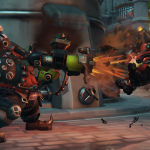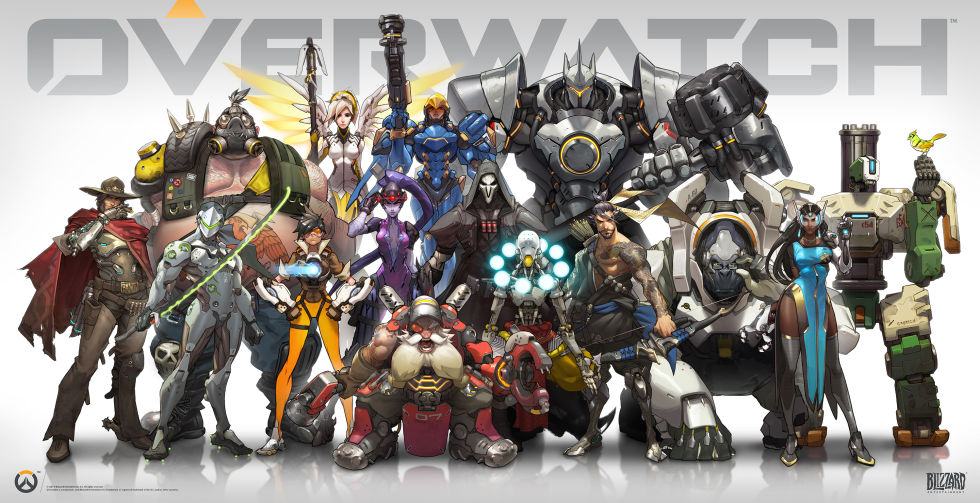
A few months ago, Blizzard launched a closed beta for its upcoming shooter Overwatch—and I’ve been engrossed in the PC version ever since. For all its faults—and there are many faults—it’s hard not to be impressed with not just how much fun Overwatch is, but how Blizzard has managed to successfully combine a solid first-person shooter along the same lines as Team Fortress 2 with the mechanics of a modern MOBA (Multiplayer Online Battle Arena) like its own Heroes of the Storm and Riot’s League of Legends.
That Blizzard has managed to create a compelling online experience comes as little surprise. This is, after all, the same studio that kept millions upon millions of players hooked to World of Warcraft for more than a decade and created Hearthstone, one of the most popular online collectible card games. With Overwatch, it has its sights set not just on creating the most popular online shooter, but one that can take on MOBAs on their home turf: the e-sports arena.
It has been hard to picture Overwatch as a crowd-pleasing, e-sports giant as I’ve sat alone in my bedroom moaning about what a bully Bastion (a transforming battle robot character) is to others over a clip-on voice mic. But now, sat with a team playing a huge multiplayer game at an event in London’s Soho and struggling against an unfair number of turrets from the opposition, Blizzard’s e-sports vision is a little clearer.
Overwatch was born from the ashes of Blizzard’s famously scrapped MMO Titan. It’s a six-on-six, class-focused game, similar to DOTA, with the likes of offence, tank, and support heroes on offer. On release, there will be 21 of these heroes, including personal favourites like the defence-class Widowmaker, a goth sniper with a grappling hook that makes it easy for her to seek out a secluded sniping spot; and the tank class Zayra, who can spam particle grenades for epic kill frenzies.
There are three game modes in which to deploy your heroes: Assault, where the attacking team is tasked with capturing two target points on the map; Escort, where the attacking team is tasked with escorting a payload along a fixed track to a certain delivery point before time runs out (a mode nicked straight from TF2); and Control, where each team tries to capture and maintain a control point until their capture percentage reaches 100 percent.
These are simple modes, but the devil is in the detail, and while Overwatch may still only be in closed beta, the quality of the game’s core shooting and team-based mechanics has helped Blizzard build a burgeoning community. I suspect that once the game launches, this will be closely followed by a professional e-sports scene. But there’s competition from all corners, in the form of Gearbox’s Battleborn, Microsoft’s Gigantic and Epic’s Paragon, all of which have a different take on the FPS-MOBA combo. While there’s no doubting that all these studios have the requisite chops to create a compelling shooter, arguably none has done so on the sheer scale Blizzard has with its stream of hit multiplayer games. Even the biggest of all shooters—Activision’s Call of Duty series—has never really cracked the e-sports market.
The question from critics is whether Overwatch and its mix of heroes, zany weapons, and simple modes can work inside the competitive framework of e-sports. After all, TF2 never made the leap successfully—although Valve has made several tweaks to the game recently to try to change that—and I worry that any changes Blizzard makes to Overwatch will sacrifice the pick-up-and-play nature of the game as it now stands. Other Blizzard e-sports successes like StarCraft 2 can be extremely daunting for a beginner, and Riot’s MOBA League of Legends struggles with this, too.
At the moment, player progression in Overwatch revolves around the Hero Gallery—who doesn’t want the devil skin for Mercy, right?—which involves leveling up heroes to gain unlocks and loot boxes. Earning the latter is very similar to opening card packs in Hearthstone and exploding into life with an oddly satisfying animation before revealing their haul of emotes, sprays, legendary skins, and personal animations.
There’s no level cap, and Blizzard has promised that even these cosmetic items will get consistent and timely additions. There’s also talk of being able to buy loot boxes with real money like you can with packs in Hearthstone. This all adds to the overall engagement with the game, but Blizzard has stressed that none of these items affects hero performance in any way, making them poor replacements for a proper PvP ladder—a must for a compelling e-sports game.
Overwatch makes a point of not displaying any post-match statistics, such as the death/kill/assist ratio either, which is very unusual. Instead, four players from each game are given in-game achievements, such as how much damage they’ve blocked or how many people they’ve healed, with the game dishing out bronze, silver, and gold medals accordingly. Giving kudos to your healer is never a bad move, but competitive players will be gagging to see their upwards progression at some point.
And yet, despite all that, I find myself struggling to argue with Blizzard that the sheer fun of the game will trump all. At the end of the console preview event at Rezzed—where my team had to be physically removed to make space for the next session after three hours of play and a string of glorious wins and defeats—I know that Blizzard is onto something special. Overwatch is a wonderfully compelling game, one that I’m already eager to go back and play again at home. Cracking e-sports would just be a bonus.
The Overwatch open beta starts May 3 on PC, Xbox One, and PlayStation 4.
Lucy Orr grew up close to CERN and Fermilab while her father was busy searching for the Higgs boson (which he eventually found). With an extensive career in digital art and animation, she still finds time to pet ferrets, listen to pop punk, and drink cider.
This post originated on Ars Technica UK

